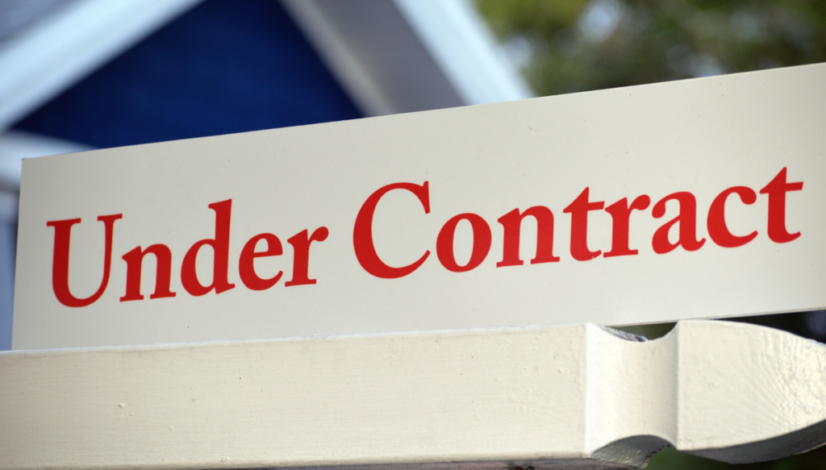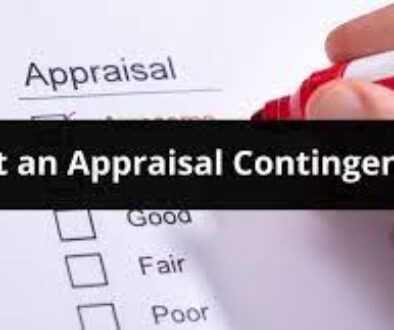Under Contract
What Does It Mean When A House Is Under Contract?
A property that’s under contract is one that the seller has previously accepted an offer on from a buyer. However, until all contingencies on the home are met and ownership transfers to the new homeowner during the closing process, the deal can still fall through.
If a property is under contract and the deal doesn’t come to fruition, backup offers may then come into consideration. A backup offer is a legally binding contract that ensures a home offer is accepted if a previously accepted deal falls through. If you’re interested in a home under contract and want to make a backup offer, be sure to talk about the pros and cons of doing so with your real estate agents.
How Do Contingencies Affect A Property That’s Under Contract?
Deals on properties under contract fall through more often than you might expect. That’s because real estate contracts often contain a number of contingencies that must be met and clauses that must be fulfilled prior to the sale, or closing, of a home.
Financing Contingency
Homes are expensive purchases, and most buyers require outside financing, like a mortgage, to acquire them. As part of real estate contracts, prospective homeowners are often required to secure this necessary financing to purchase the property within a set amount of time after an offer is accepted.
While many prospective buyers may obtain pre-qualification letters from their mortgage lenders before searching for properties, they must still meet their individual lender’s requirements and secure approvals to obtain the home loan.
Home Appraisal Contingency
Lenders want to make sure that they’re not lending more than a property is worth. This is a point they typically verify by requiring a home appraisal. If the home appraises for lower than the agreed-upon purchase price, it’s up to buyers and sellers to figure out how to cover the difference.
This could be done by the buyer paying more out of pocket or by the seller agreeing to lower the home’s total cost. If the home buyer has an appraisal contingency,they’ll have more leverage when negotiating the sale price with the seller.
Home Sale Contingency
Many buyers who are currently homeowners make their offers contingent on the sale of their existing home, so they’re not inadvertently stuck paying two mortgages. But there’s no guarantee, especially in uncertain markets, that this property will be sold in the time allotted.
If not, buyers may be unwilling to proceed with the deal or unable to qualify for financing based on the added expense on top of that associated with their current home.
Example Of Contingencies In Use
Let’s say Taylor, a 30-year homeowner, is looking to buy a house that’s larger than their current home, and offers more space for their growing family. When they make an offer on a property and put down earnest money, Taylor might include a few fail-safes, like a home inspection contingency, that requires any deficiencies that an inspector finds to be taken care of within 10 days.
The contingency also includes a clause that makes any purchase offer contingent on the sale of their existing home prior to closing. Both may prove a handy way out of the home sale if, for instance, there’s evidence of flooding on the property or if Taylor is unable to sell their existing home and can’t afford to pay for two mortgages simultaneously.
What’s The Difference Between Sale Pending Vs. Under Contract?
Just like “under contract,” a pending sale means that a homeowner has accepted a buyer’s offer. However, it generally means that most contingencies have already been addressed and a contract has been signed. All that remains of the process is to finalize closing and escrow.
At this point, the sale of the property is nearly final – but the property still hasn’t officially traded hands. If a home currently has a pending status, you may still be able to put in a backup offer. However, be advised that the seller’s hands are largely tied, and odds are you won’t acquire the property unless the original deal falls through.
Can Home Buyers Back Out Of A Sale If They’re Under Contract?
Among the most common are:
- Low appraisals, and the subsequent inability to either secure a loan from a mortgage lender or work terms out with the property seller.
- Home inspection issues, which must be addressed within a certain time-limited period, and the prospective issues and concerns that they may uncover.
- Problems with the buyer obtaining financing, which can occur for many reasons, such as job loss or issues relating to debt to income ratio.
- A buyer’s inability to sell their existing property.
While there are many reasons a buyer can back out of a sale, it doesn’t always mean they will get their earnest money deposit back.




